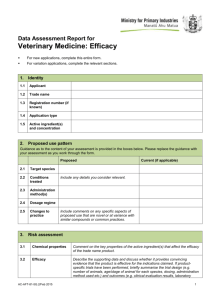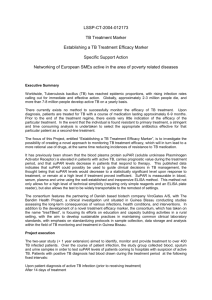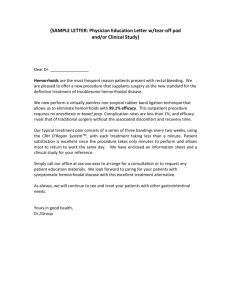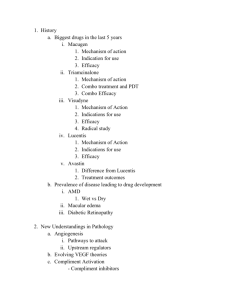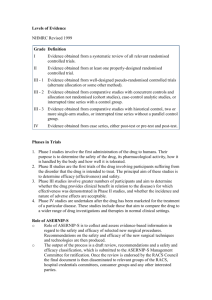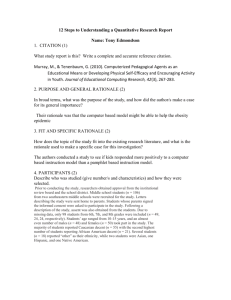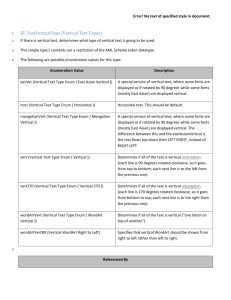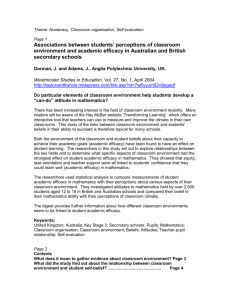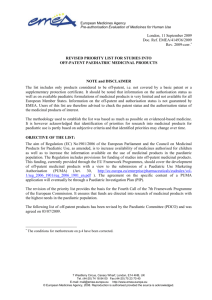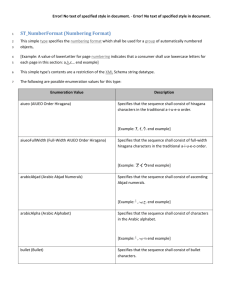Health_Canada_Protocol_Guidance_Notes
advertisement
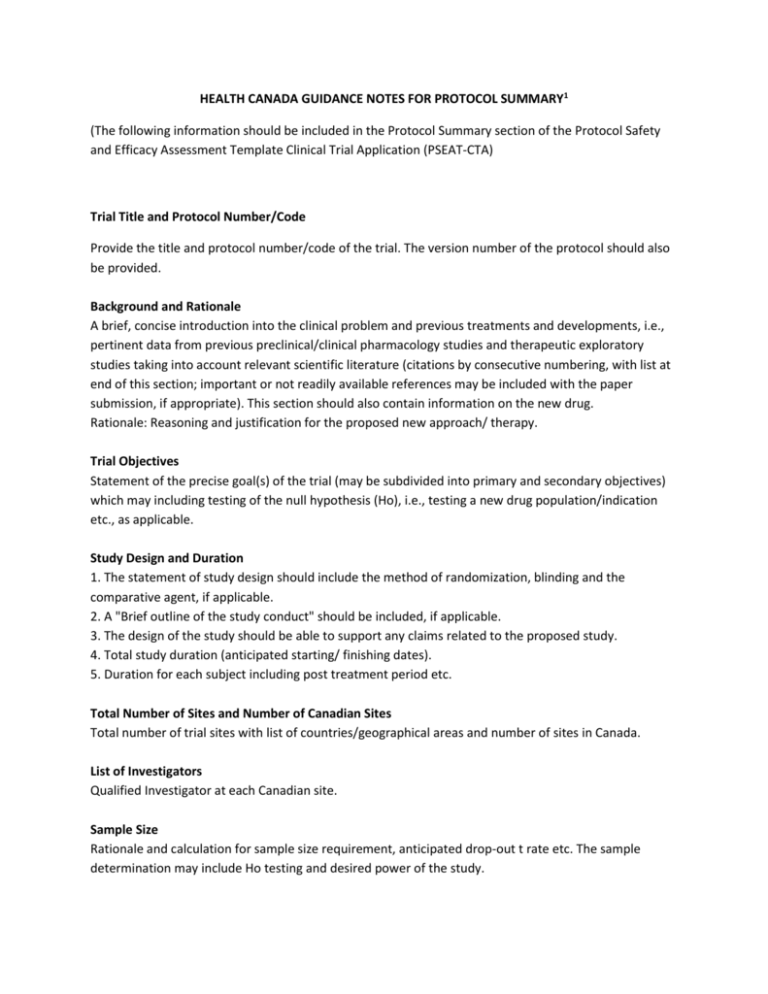
HEALTH CANADA GUIDANCE NOTES FOR PROTOCOL SUMMARY1 (The following information should be included in the Protocol Summary section of the Protocol Safety and Efficacy Assessment Template Clinical Trial Application (PSEAT-CTA) Trial Title and Protocol Number/Code Provide the title and protocol number/code of the trial. The version number of the protocol should also be provided. Background and Rationale A brief, concise introduction into the clinical problem and previous treatments and developments, i.e., pertinent data from previous preclinical/clinical pharmacology studies and therapeutic exploratory studies taking into account relevant scientific literature (citations by consecutive numbering, with list at end of this section; important or not readily available references may be included with the paper submission, if appropriate). This section should also contain information on the new drug. Rationale: Reasoning and justification for the proposed new approach/ therapy. Trial Objectives Statement of the precise goal(s) of the trial (may be subdivided into primary and secondary objectives) which may including testing of the null hypothesis (Ho), i.e., testing a new drug population/indication etc., as applicable. Study Design and Duration 1. The statement of study design should include the method of randomization, blinding and the comparative agent, if applicable. 2. A "Brief outline of the study conduct" should be included, if applicable. 3. The design of the study should be able to support any claims related to the proposed study. 4. Total study duration (anticipated starting/ finishing dates). 5. Duration for each subject including post treatment period etc. Total Number of Sites and Number of Canadian Sites Total number of trial sites with list of countries/geographical areas and number of sites in Canada. List of Investigators Qualified Investigator at each Canadian site. Sample Size Rationale and calculation for sample size requirement, anticipated drop-out t rate etc. The sample determination may include Ho testing and desired power of the study. Patient Population Description of specific characteristics of the trial participants (e.g. disease/ stage/ indication/ conditions/ treatment etc.) as applicable and of diagnostic criteria and assessment. Inclusion Criteria Enumeration of conditions determining participation in the proposed clinical trial. Exclusion Criteria Enumeration of conditions determining participation in the proposed clinical trial. Drug Formulation Brief description of the study drug(s) and formulation to be used in the clinical trial. The relationship to the formulations used in the preclinical and/or other clinical trials should be delineated, as applicable. This may also include disclosure of the formulation intended to be marketed and/or any bridging studies which may be necessary, planned, initiated and/or already performed if different formulations have been used during clinical development. Instructions for safe handling. Dosage Regimen Rationale for dose selection. Description of the schedule(s) for using the study drug(s) including escalations/ maintenance / reductions / discontinuation, as applicable. Description of other supportive measures and dose modifications for specific adverse events (anticipated toxicities), as applicable. Washout Period Description for pre-, during- and post-trial, as applicable. Pre-study Screening and Baseline Evaluation Description of the process of clinical validation for participation in the clinical trial, including methodology / schedule of events. Treatment / Assessment Visits Schedule of all events / visits / procedures during the clinical trial. Concomitant Medication Enumeration and description of all dis-/allowed drug/ medications, in addition to the study drug Rescue Medication and Risk Management Description of available supportive measures/ antidotes/ medications/ dosages / procedures (including follow-up) used to help reverse untoward effects or lack of efficacy resulting from any applications of drug(s)/ procedures in connection with the clinical trial. This section should include any risks, for example, dose dumping from slow release formulations or immunogenicity. Premature Withdrawal / Discontinuation Criteria Enumeration of all conditions / criteria and management for drug/ patient's withdrawal or (premature) discontinuation, including voluntary withdrawal by subject without prejudice to future treatment by the physician. Early stopping rules for the trial. Efficacy Variables and Analysis Description and validation of primary endpoint(s), ie. responses/changes from baseline over time in relation to clinical trial events. Description and validation of related secondary changes (secondary endpoints) following from clinical trial events. Safety Variables and Analysis Monitoring/ assessing adverse drug reactions/ adverse events/ toxicities/ clinical laboratory parameters etc. in relation to clinical trial events. Statistical Analysis (The following points are presented for consideration while completing this section) 1. Analysis of trial parameters (primary/ secondary endpoints), population, demographics, as applicable. 2. Efficacy analysis methods and results of efficacy end-point analysis. 3. Safety analysis methods and results of safety end-point analysis. 4. Exploratory end-point analysis: evaluation effect(s) (or lack of effects) of relevant biochemical/ pharmacological etc parameters, as applicable. 5. Pharmacokinetic endpoint analysis, as applicable. 6. Interim analysis and role of Data Safety Monitoring Board, as applicable Reference 1. Health Canada. Protocol Safety and Efficacy Assessment Template Clinical Trial Application. PSEAT-CTA v2.0: Effective Date 2008-04-01. Retrieved from http://www.hc-sc.gc.ca/dhpmps/alt_formats/hpfb-dgpsa/pdf/prodpharma/pseat_cta_meiep_dec-eng.pdf

![Quality assurance in diagnostic radiology [Article in German] Hodler](http://s3.studylib.net/store/data/005827956_1-c129ff60612d01b6464fc1bb8f2734f1-300x300.png)
